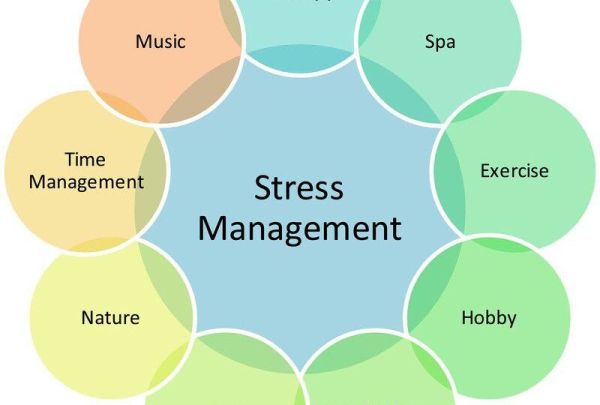Introduction
We’ve all been there at some point of our career lives, haven’t we?
Recovering from an emotional outburst at work can be a challenging but essential skill for maintaining professionalism and fostering healthy workplace relationships.
Whether it’s a heated argument, a burst of frustration, or tears of stress, emotional outbursts can happen to anyone in the workplace.
However, how you handle and recover from these moments is crucial for your own well-being and the dynamics of your team.
In this guide, we’ll explore effective strategies to navigate and recover from emotional outbursts at work with grace and resilience.
The Shortest Survival Guide for Emotional Rollercoasters
Firstly, it’s important to acknowledge your emotions without judgment and understand the triggers behind your outburst.
Next, taking responsibility for your actions and apologizing if necessary can help rebuild trust and respect with your colleagues.
Additionally, implementing self-care techniques such as deep breathing, mindfulness, or taking a short break can help you regain composure and perspective.
Seeking support from trusted colleagues or a professional counselor can provide valuable insights and coping mechanisms.

By learning from your experiences and proactively managing your emotions, you can bounce back stronger and cultivate a positive work environment conducive to growth and collaboration.
Understanding and Managing Workplace Outbursts
The major types of emotions include fear, sadness, anger, surprise, excitement, guilt, shame, disgust, interest, and happiness. These emotions develop in an orderly sequence over the course of infancy and childhood.
Everybody has a rich inner landscape contoured by emotions; they not only give meaning and color to everyday experience, but emotions commonly influence decision-making. They may be humanity’s earliest guide to how to get basic needs met. Yet science is not quite clear what emotions are.
Whether they are inborn, genetically determined reactions, each with its own mechanism; patterns of response to stimuli, each distinctively etched into neural circuitry; or in-the-moment interpretations of experience is a subject of keen debate.
Experiencing an emotional outburst can be a vulnerable experience, particularly if you’ve kept emotions under wraps and aren’t used to expressing how you feel.
Maybe you’ve been piling extra work. You’ve been stressed and frustrated, but you wanted to be a good team player. Then, one day, you miss an important family event because of your workload and that’s the last straw. You experience intense anger and your emotions bubble to the surface. Before you know it, you’re putting it all out there. You’ve experienced an emotional outburst.
Emotional outbursts are natural and common, but the overwhelm you feel may be preventable. In the workplace they can occur for various reasons, including high stress levels, interpersonal conflicts, unrealistic expectations, and personal challenges. These outbursts may manifest as raised voices, tears, or displays of anger, potentially disrupting workflow and creating tension among colleagues. While experiencing emotions is natural, allowing them to escalate into outbursts can have negative consequences for one’s career and well-being.
Recognize and Acknowledge Emotions:
The first step in recovering from an emotional outburst is to recognize and acknowledge the emotions that triggered the outburst. Take a moment to reflect on what you’re feeling and why.
Are you feeling overwhelmed, frustrated, or misunderstood?
Identifying the underlying emotions can help you gain clarity and perspective, enabling you to address them more effectively.
You will always feel emotions, even if you don’t understand them, address them, or accept them. But it helps when you do. In cultures or societies where people are told that being “too emotional” is a bad thing, it can be difficult to express what you’re feeling.
Repressing emotions can also negatively affect your mental well-being, not to mention your relationships, communication skills, stress levels, and more.
Giving yourself permission to feel — really feel — is an incredibly powerful thing. And it can help you get better at regulating and accepting your emotions.
Take a Pause:
When emotions are running high, it’s essential to take a pause and step away from the situation if possible. Excuse yourself from the conversation or take a short break to collect your thoughts and regain composure. Use this time to practice deep breathing or mindfulness techniques to calm your mind and body.
Taking a pause allows you to disengage from the emotional intensity and approach the situation with a clearer mindset. The power of taking pause is well researched. Not only does pausing promote relaxation, a break from noise and doing also refreshes and re-energizes you for hours. Taking time to just be still and quiet gives your nervous system a chance to regain balance.
Seek Support:
Dealing with emotional outbursts alone can be overwhelming and isolating. Reach out to a trusted colleague, mentor, or friend for support and guidance. Sharing your feelings with someone you trust can provide validation, perspective, and reassurance, helping you navigate through challenging emotions more effectively.

Additionally, seeking support from a professional counselor or therapist can offer valuable insights and coping strategies for managing emotions in the workplace. We all need help at work from time to time, but it’s not always easy to say so. No matter how far you’ve come in your career, you may worry about seeming incompetent, weak, or simply annoying if you ask for assistance. But seeking support isn’t a weakness.
In fact, it’s often the difference between failure and success. It can prevent costly or embarrassing mistakes, and mark you out as someone with self-awareness, confidence, and an understanding of shared goals.
Practice Self-Compassion:
It’s important to be gentle and compassionate with yourself in the aftermath of an emotional outburst. Acknowledge that everyone experiences emotions, and it’s okay to feel upset or overwhelmed at times. Avoid self-criticism and negative self-talk, and instead, practice self-compassion by offering yourself kindness, understanding, and acceptance.
Treat yourself with the same kindness and empathy you would offer to a friend facing a similar situation. Having self-compassion means being able to relate to yourself in a way that’s forgiving, accepting, and loving when situations might be less than optimal. We know that it’s similar to (yet less permanent than) self-love and that it’s distinct from self-esteem.
Reflect and Learn:
After the dust has settled, take time to reflect on the emotional outburst and its underlying causes. What triggered the outburst, and how could it have been prevented or managed differently? Reflecting on the situation can help you gain insights into your triggers, coping mechanisms, and communication style, enabling you to learn and grow from the experience. Use this opportunity to identify strategies for managing similar situations in the future more effectively.

Reflective learning involves actively monitoring and assessing your knowledge, abilities, and performance during the learning process, in order to improve the process and its associated outcomes. For example, if you’re studying for a test, you can engage in reflective learning by asking yourself how well you understand each of the topics that you’re studying, and based on this figure out which topics you need to spend more time on. Reflective learning can be beneficial in various ways and in various contexts, so it’s often worthwhile to engage in it.
Communicate and Apologize if Necessary:
Apologies can be an important way to mend interpersonal relationships, but it is also normal to have complicated feelings about them. Some of us were forced to apologize as children when we hurt someone, and some of us apologized freely and felt immediately better after doing so. Some people feel ashamed by apologizing, while others feel ashamed until we have done so. If your emotional outburst had a negative impact on others, it’s important to communicate openly and take responsibility for your actions.
Apologize sincerely for any distress or discomfort caused and express your commitment to addressing the underlying issues constructively. Effective communication and accountability can help rebuild trust and strengthen relationships with colleagues, fostering a culture of understanding and empathy in the workplace.
Develop Coping Strategies:
Building resilience against future emotional outbursts involves developing healthy coping strategies for managing stress and emotions. Incorporate practices such as regular exercise, mindfulness meditation, journaling, and time management techniques into your daily routine to promote emotional well-being and stress management.
Set boundaries, prioritize self-care, and seek professional support if needed to maintain a healthy work-life balance and prevent burnout.

Whether you’ve been dumped by your date or you’ve had a rough day at the office, having healthy coping skills can be key to getting through tough times. Coping skills help you tolerate, minimize, and deal with stressful situations in life. Coping skills are the tactics that people use to deal with stressful situations. Managing your stress well can help you feel better physically and psychologically and impact your ability to perform your best. But not all coping skills are created equal.
Sometimes, it’s tempting to engage in strategies that will give quick relief but might create bigger problems for you down the road. It’s important to establish healthy coping skills that will help you reduce your emotional distress or rid yourself of the stressful situations you face.
Recovery Mode: Fixing Things After an Office Blow-Up
Dealing with the aftermath of an emotional outburst at work calls for a careful and considerate approach.
Begin by taking a moment to look inward and understand what triggered the outburst and the emotions behind it.
Next, initiate an open and honest conversation with your colleagues or supervisor to address any concerns or misunderstandings that may have arisen. It’s important to listen actively to their perspective and communicate your own thoughts and feelings calmly.
Then, take proactive steps to rebuild trust and repair any strained relationships, demonstrating a commitment to fostering a positive and supportive workplace culture.
By approaching the situation with empathy, resilience, and a willingness to learn and grow, you can navigate through the consequences of the outburst and work towards restoring harmony and mutual respect in the professional environment.
Recovering from Workplace Outbursts
As a result of an emotional outburst at work, it’s crucial to take proactive steps towards recovery and resolution. Begin by acknowledging the impact of your actions on yourself and others involved. Reflect on the underlying triggers and emotions that led to the outburst, and consider seeking support from a trusted colleague, mentor, or professional counselor. Apologize sincerely to those affected, and commit to implementing strategies for managing emotions constructively in the future.
Embrace self-care practices such as mindfulness, exercise, and stress management techniques to cultivate emotional resilience and maintain a positive work environment.
Building Resilience
Building resilience and self-awareness is essential for recovering from an emotional outburst at work. Take time to reflect on the triggers and underlying emotions that led to the outburst. Engage in self-care practices such as mindfulness, meditation, or physical exercise to manage stress and regulate emotions.
Seek support from trusted colleagues, mentors, or a professional counselor to process your feelings and develop coping strategies. Practice effective communication techniques, such as active listening and assertive expression, to address conflicts and prevent future outbursts.
Remember that everyone experiences moments of vulnerability, and seeking help is a sign of strength, not weakness. By learning from the experience and implementing proactive strategies, you can navigate workplace challenges with resilience and emotional intelligence, fostering a positive and supportive work environment for yourself and your colleagues.
Conclusion
Recovering from an emotional outburst at work is a journey that requires self-awareness, resilience, and a commitment to growth. By embracing emotions as a natural part of the human experience and leveraging them as opportunities for learning and development, individuals can navigate workplace challenges more effectively.
Keep in mind to pause, reflect, seek support, and practice self-compassion during difficult moments. With effective communication and coping strategies in place, individuals can cultivate a positive and supportive work environment where everyone can thrive.
So, what steps will you take to enhance your emotional intelligence and resilience in the workplace?
Related Posts





